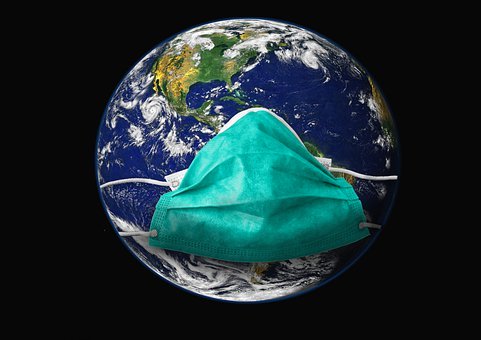Yes It Would

On January 10, 2017 I posted a blog entitled, Would It Help? You can read it (and all of my previous blogs) at alancfox.com. That blog began:
We all have a lot to worry about. The future is uncertain. None of us know if we’ll survive until dinner, let alone dance at our five-year-old daughter’s wedding.
The question, Would It Help? seems even more timely today as we find ourselves in the midst of a pandemic that has become a global crisis with nowhere to hide. This time the problem can’t be solved by moving to New Zealand or to your parent’s’ or children’s home.
In my previous blog I described a scene in the movie Bridge of Spies in which the spy Rudolph Abel is on trial for his life. But when his attorney, played by Tom Hanks, is leaving after a conference at the prison, Hanks turns and directly asks Abel, “Do you understand that if you are convicted you could be executed?”
“I understand.”
“You don’t seem concerned.”
Abel thinks about it briefly, and shrugs. “Would it help?”
Many of us have been trained since childhood to share our worries. We learned that Mom would favor us with support and sympathy if we said something like, “Mom, I’m worried about . . . “
We would get even more sympathy if we said, “Mom, I’m really worried about . . .”
There are many rewards from heavy worry. The best solution to the problem is not one of them.
We know that crisis and constant worry can seriously affect our health, changing our eating habits, disrupting our sleep patterns, or causing us to lash out at others. Heavy worry can also cloud our judgment. When I was practicing law a client insisted that we accept the first, unreasonable, settlement offer.
“I cannot let myself worry about this for one more day,” my client explained. My client just plain gave up.
Giving up is a poor option. Gaining or losing weight is a poor option. Losing sleep is a poor option.
Whenever I start to worry, I have a rule. If I can do something about it right now, I do. If I can’t do anything about it right now, I stop worrying. I’m now working from home, and in the evening watching TV programs I would otherwise have missed. I am planning, not worrying.
I’ll share with you with one hint. There is an effective way to receive support and sympathy without having to immerse yourself in worry. Just ask for it directly. You might say, “I’m concerned about . . . but I don’t want to tell you, (or even admit to myself), how worried I am. So would you please give me some support and sympathy just because I’m asking for it?” We all need mutual support during times like these. (Two cent royalty for each use of this hint, up to one dollar total. After you’ve done this fifty times it will be a habit, which I don’t charge for.)
Does “not worrying” work? Yes, I believe that refusing to dwell on your troubles can be healthier and more constructive than the alternative.
After writing my blog back in 2017, I headed for dinner and a TV football game. This time I’m going to watch yet another documentary on Netflix and finish reading the 2012 book Spillover by David Quammen. It’s very interesting book on the topic of, well, Coronavirus. It sort of predicts where we are today.
Keep safe.
Alan

Comment ( 1 )